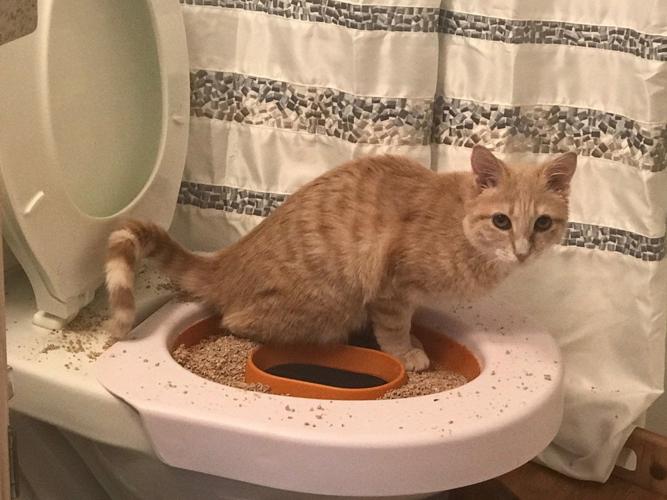Reasons You Mustn't Flush Cat Poop Down Your Toilet - Preserve Your Plumbing System
Reasons You Mustn't Flush Cat Poop Down Your Toilet - Preserve Your Plumbing System
Blog Article
We've come across this article pertaining to How to Dispose of Cat Poop and Litter Without Plastic Bags down the page on the internet and figured it made perfect sense to share it with you in this article.

Introduction
As cat proprietors, it's important to bear in mind exactly how we get rid of our feline buddies' waste. While it may appear practical to flush pet cat poop down the toilet, this method can have harmful consequences for both the environment and human wellness.
Alternatives to Flushing
Luckily, there are safer and extra accountable ways to dispose of feline poop. Consider the adhering to options:
1. Scoop and Dispose in Trash
The most typical method of disposing of feline poop is to scoop it into a naturally degradable bag and throw it in the trash. Make certain to utilize a dedicated trash inside story and deal with the waste without delay.
2. Use Biodegradable Litter
Go with naturally degradable pet cat litter made from products such as corn or wheat. These clutters are environmentally friendly and can be securely dealt with in the garbage.
3. Bury in the Yard
If you have a yard, take into consideration burying feline waste in a marked area away from veggie yards and water sources. Make certain to dig deep enough to avoid contamination of groundwater.
4. Mount a Pet Waste Disposal System
Purchase a pet dog waste disposal system particularly made for cat waste. These systems utilize enzymes to break down the waste, lowering odor and environmental influence.
Health Risks
In addition to ecological worries, purging cat waste can likewise posture health risks to people. Pet cat feces might contain Toxoplasma gondii, a parasite that can create toxoplasmosis-- a possibly extreme illness, particularly for expecting females and people with weakened immune systems.
Ecological Impact
Purging pet cat poop presents hazardous pathogens and bloodsuckers right into the water, posing a significant danger to water environments. These impurities can negatively impact marine life and compromise water quality.
Conclusion
Responsible pet ownership extends beyond providing food and shelter-- it also involves proper waste management. By refraining from flushing cat poop down the toilet and choosing alternative disposal techniques, we can lessen our environmental impact and protect human wellness.
Why You Should Never Flush Cat Poop Down the Toilet
A rose by any other name might smell as sweet, but not all poop is created equal. Toilets, and our sewage systems, are designed for human excrement, not animal waste. It might seem like it couldn’t hurt to toss cat feces into the loo, but it’s not a good idea to flush cat poop in the toilet.
First and foremost, assuming your cat uses a litter box, any waste is going to have litter on it. And even the smallest amount of litter can wreak havoc on plumbing.
Over time, small amounts build up, filling up your septic system. Most litter sold today is clumping; it is made from a type of clay that hardens when it gets wet. Ever tried to scrape old clumps from the bottom of a litter box? You know just how cement-hard it can get!
Now imagine just a small clump of that stuck in your pipes. A simple de-clogger like Drano isn’t going to cut it. And that means it’s going to cost you big time to fix it.
Parasitic Contamination
Believe it or not, your healthy kitty may be harboring a nasty parasite. Only cats excrete Toxoplasma in their feces. Yet it rarely causes serious health issues in the cats that are infected. Most people will be fine too if infected. Only pregnant women and people with compromised immune systems are at risk. (If you’ve ever heard how women who are expecting are excused from litter cleaning duty, Toxoplasma is why.)
But other animals may have a problem if infected with the parasite. And human water treatment systems aren’t designed to handle it. As a result, the systems don’t remove the parasite before discharging wastewater into local waterways. Fish, shellfish, and other marine life — otters in particular — are susceptible to toxoplasma. If exposed, most will end up with brain damage and many will die.
Depending on the species of fish, they may end up on someone’s fish hook and, ultimately on someone’s dinner plate. If that someone has a chronic illness, they’re at risk.
Skip the Toilet Training
We know there are folks out there who like to toilet train their cats. And we give them props, it takes a lot of work. But thanks to the toxoplasma, it’s not a good idea.
:max_bytes(150000):strip_icc()/0S1A1090-49a8e2c66f8e41d6901f2559787a7f24.jpg)
We had been made aware of that report on How to Dispose of Cat Poop and Litter Without Plastic Bags from someone on a different web page. Sharing is good. Helping people is fun. Thanks a bunch for your time. Don't hesitate to pay a visit to our blog back soon.
Booking Page Report this page